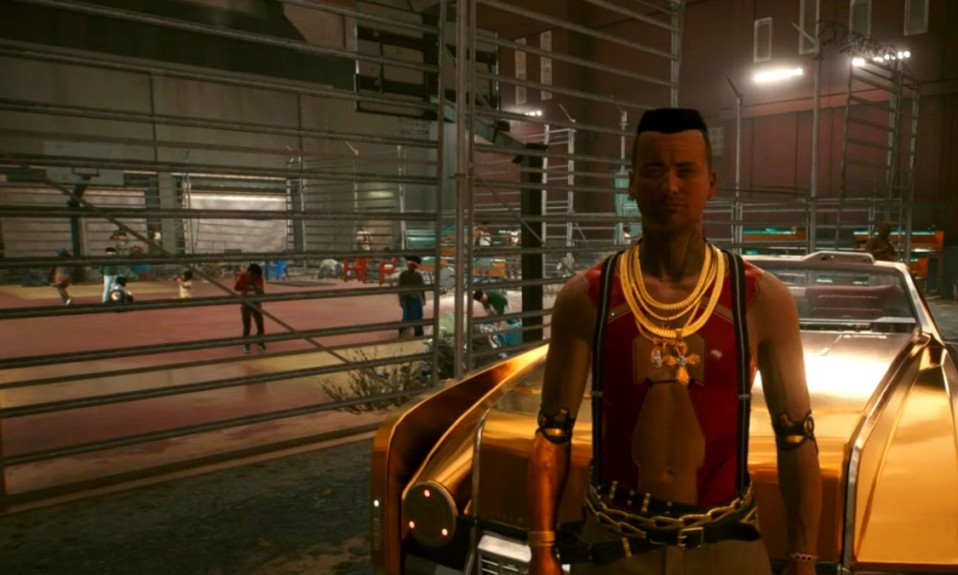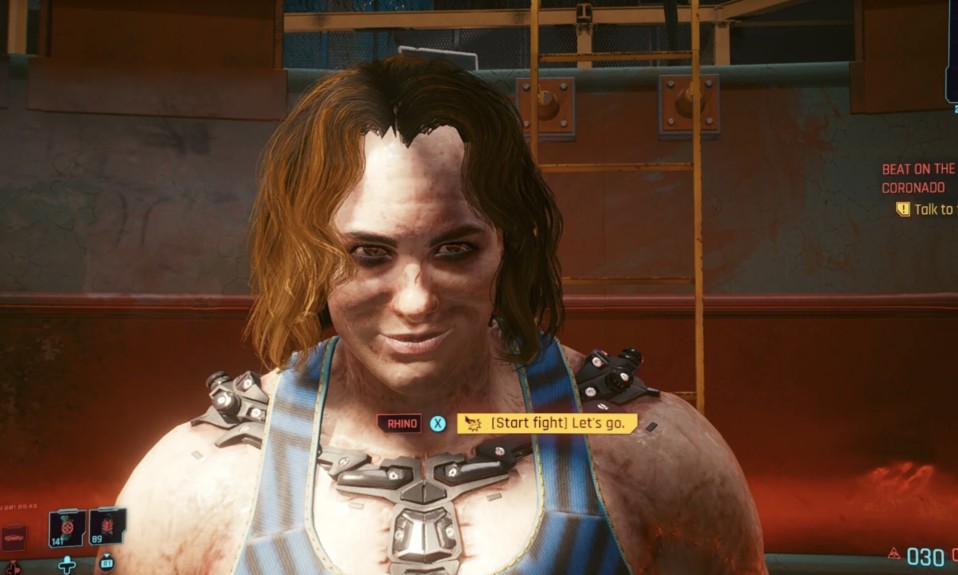A fire can warm your home and cook your food but fan the flames long enough and your house is soon burning down.
The outcry over CD Projekt Red’s handling of the Cyberpunk 2077 continues to boil over, with another class-action lawsuit being filed against the developer over the complete disaster that is the game on base last-gen consoles, and yet another suit, filed by their own investors, over their handling of the fiasco.
To say that Cyberpunk 2077’s reception was unexpected is an understatement. Many of CDPR’s millions of fans had spent years dreaming of the day Cyberpunk 2077 would come out, enduring numerous delays and a nigh-decade long production cycle that had them frothing at the mouth when it finally released last December. Thus, when the game finally released, rather than the clouds parting and the single greatest ARPG ever invented descending, the storm clouds brewed and took on a concertedly darker tone — eventually breaking over the otherwise idyllic isle of CD Projekt Red with thunder and fury, harshly damaging their reputation but, importantly, making them many hundreds of millions of dollars in the process.
So, was it worth it? What does a post-mortem on the Cyberpunk 2077 release show: a rip-roaring financial success for CD Projekt Red or a smoking crater where their brand used to be?
Was Cyberpunk 2077 a Fail?
Cyberpunk 2077 Sales Numbers Point to Success
The first thing to note is that Cyberpunk 2077 has made CD Projekt Red rich(er), though not as rich(er) as it might’ve been. Cyberpunk 2077 will remain, without a doubt, a staggering financial success, reaching over the table and raking in an enormous pile of coins for CDPR almost immediately. According to an internal memo, CD Projekt Red recouped their nine years of production and hundreds of millions of dollars almost immediately. The game’s huge initial surge has been severely dampened by the game’s critical reception, so much so that AC Valhalla was able to sneakily stealth their way past them to the top spot for the holiday season — a spot that, had everything gone according to plan, Cyberpunk 2077 should’ve held without question.
Even so, Cyberpunk 2077 sold more than 13 million copies in December, a number inclusive of the many refunds being issued — many, but not all. The game has still yet to re-release on the Sony store and with many other outlets offering Cyberpunk 2077-specific return policies, this number could change. But not by much. With the Cyberpunk 2077 having cleared its own cost, Johnny Silverhand and our multifaceted V will continue to generate money for CD Projekt Red for years to come. More sales will be made when Sony re-releases the game, and as DLCs are launched.
Heck, even the earliest inklings of a promising mod community have already begun to blossom and we very well could be looking at something like a hybrid of Skyrim and Fallout ’76 — one: Bethesda’s current Magnum Opus that lives on through a strung-together multi-verse of incredible mods, the other: Bethesda’s most staggering disappointment (which has quietly improved and reinvented itself since it’s catastrophic launch).
Cyberpunk 2077 is and will continue to be an objective financial success for CD Projekt Red. It will generate further millions for Europe’s second-biggest games developer and drive sales for a company with one of the more inspiring origin stories of any gaming giant. But It was also, utterly and undeniably, a remarkable failure — not on the balance sheet, but in the eyes of the many millions of CDPR fans who threw their own coins into gleaming Corpo treasure trove.
CDPR’s Reputation Needs a Maxdoc
Whatever your individual take on Cyberpunk 2077, it’s inarguable that the mess surrounding its release dealt a severe blow to CDPR’s brand and reputation. The enormous number of refunds being issued by Sony, Xbox, Gamestop aside won’t put CDPR in the red, but the amount of support from distributors for refunds isn’t normal. It’s not every day that Gamestop offers refunds for opened physical copies of the game, let alone Sony pulling one of the best selling games of the year from its store completely. That’s not normal. And it has nothing to do with money.
It’s about quality and — more importantly — honesty.
Gamers have been known to forgive a buggy game. Look at the aforementioned Skyrim — the vanilla version is still rife with a smorgasbord of bugs, hilarious or frustrating, and yet the game remains beloved despite it (and indeed in some meme-ified cases, because of it). On the PC, next-gen consoles, and the Stadia, Cyberpunk 2077 is buggy but beautiful. It is occasionally awkward but certainly playable. It has enough going for it in the way of skillful storytelling, immersive worldbuilding, and stellar art that you can forgive some of the oversights in the perk system and other mechanics.
But those who purchased Cyberpunk 2077 for the base versions of the PS4 and Xbox One received something else entirely. They have nothing to fall in love with and overshadow its integral flaws. You may have already had a few “Cyberpunk 2077 PS4 glitches” pop up in your YouTube feed already, maybe even caught a glimpse of the disturbingly polygonal faces of the half-rendered NPCs or V as they hurtled through the air over their motorcycle locked in a T-Pose like some PS1 antichrist. More than unfinished, the game seemed altogether broken in so many ways, it might have been hilarious had those customers not paid the same price as those of us who were able to snag a copy for PC, Stadia, or the next-gen consoles.
Base Last-Gen Performance was Unfortunate; CDPR’s Behavior is Unforgivable.
Indeed, the otherwise lovable CD Projekt Red managed to, in every way thinkable, create a perfect storm of disappointment for itself with the Cyberpunk 2077 launch. In one of the most inglorious cases of failing to manage expectations intelligently, CD Projekt Red routinely fanned the flames of hype to unfathomable levels before releasing a game they knew had serious problems. Nine years of wait, with some fans having graduated high school, college, and even started families while waiting for launch, and with spectacular use of the game’s most obvious star-power at E3 in 2019, many expected Cyberpunk 2077 to be the single greatest thing to happen to gaming since the home console.
And then CD Projekt Red released what is only a great game — not the best game, just a very good game (on the right console). And a great game simply doesn’t cut it when you’ve spent nine years dumping gallons of gasoline on the fires of anticipation. Then CD Projekt Red marketed and sold the game just as readily to base-gen console gamers as they did to the rest of the playerbase without so much as batting an eye about performance.
And that’s where things get icky, and it becomes hard to paint CD Projekt Red in a favorable light. It’s impossible CD Projekt Red didn’t know the game would perform so badly on the base consoles. That’s just not how AAA development works. But, supposing they could, there are only two possibilities surrounding CDPR’s immense PR failure. Either:
A) CD Projekt Red, despite spending hundreds of millions of dollars and nine years of development and delays, somehow missed the fact that the game was unplayable on some platforms, indicating a gross production oversight by one of the biggest developers in the world.
B) Or, more likely, CD Projekt Red knew full well that the game was unplayable and solid it anyway. Either they underestimated how far doing so would rub their own fans the wrong way, or they let the cost/benefit analysis and assured profits
— Cyberpunk 2077 (@CyberpunkGame) December 14, 2020
Only one of those two options is even remotely likely, yet either explanation is a phenomenal letdown for those who came to love CD Projekt Red and their seeming authenticity as a developer interested in making really freaking good games, not just profitable games. It’s a true shame that, following the outrage among the community and airing of grievances, it became known that CD Projekt Red refused to provide review copies of Cyberpunk 2077 for the base-versions of the last-gen consoles. This is something like a smoking gun of intent and premeditation on CDPR’s part, inarguable and undeniable. Any other developer who hadn’t just come off the heels of one of the greatest games of all time in The Witcher III: Wild Hunt would’ve been sunk by this debacle. Only the gratitude that comes with such a resounding achievement and a previously immaculate track record were enough to pad their armor against such a grievous blow.
What to Make of Cyberpunk 2077 and CD Projekt Red
The answer to the question of whether or not Cyberpunk 2077 was a failure for CD Projekt Red is two-pronged; No, the game was a resounding commercial success. But the fact that what was expected to be the jewel in the crown of CDPR instigated unprecedented backlash, stamped with the removal of a best-seller from the Playstation Store, a warning page on the Microsoft Store, and, by Jove!, class action lawsuits against CD Projekt Red, makes it hard to argue that Cyberpunk 2077 was a success. Will it wreck them? No. But will there be a reckoning? Yes.
The damage CD Projekt Red was dealt by the Cyberpunk 2077 wasn’t lethal — but it was a critical hit. No amount of Corpo coffers can tank another hit like that; it all depends on what they do next. With the major Cyberpunk 2077 patch, with Cyberpunk 2077 multiplayer, and ultimately their next title. Fans will be wary, but fans will be next time around. Depending on what CD Projekt Red does next, and whether or not they can learn to distinguish between good marketing and good PR, the Cyberpunk 2077 launch may only be a stumbling block on the way to broader horizons.





